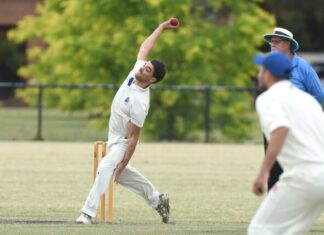AT the council meeting on 18 August Cardinia Shire council unveiled its preelection caretaker period policy. Item 7.4 states: “The council will suspend public question time for council meetings conducted during the preelection caretaker period.”
The council sought legal advice to ensure this was appropriate.
It was felt by some councillors that it would prevent “electioneering” questions from the public gallery and that the councillors could then concentrate on important matters.
It was stated at the meeting that if constituents had any queries, the councillors could still be contacted by telephone or email.
Recently I had occasion to contact all councillors by email for advice on a particular issue.
I eventually received four replies – one was helpful, one wanted more information and two actually acknowledged receipt of my emails but did not provide any assistance. Three did not reply at all. I am not sure therefore that I can rely on councillors to respond to my queries.
Readers may be interested to know I have undertaken a telephone survey of the 20 metropolitan councils that are also involved in elections this November.
I asked all their representatives whether their councils had suspended public question time at their meetings. All 20 have not. Many expressed amazement that our shire had acted in such a manner.
One person suggested that not having question time before the election made the councillors look like scaredycats.
A couple thought it might be a good idea but their councils had not considered it.
A spokesperson for the Victoria Local Governance Association stated suspension of public question time was “probably unusual, but not wrong or right”.
I appreciate the fact that there are not many residents who do take advantage of public question time and so few would be disadvantaged by the ruling. That is not the point.
Due to the 4pm start of Cardinia Shire council meetings, many residents cannot even attend to ask any questions.
As part of my informal survey, all councils were asked at what time their meetings were held. The results showed 6pm for one council, 6.30pm for two, 7pm for nine, 7.30pm for six and 7.45pm for two.
Many representatives expressed surprise that our council could act in a way that so obviously precludes the participation of interested residents. One respondent, however, did say that some rural councils held early meetings.
I hope our next council will be more responsive to resident concerns.
Diane Henderson,
Pakenham.
Questionable time
Digital Edition
Subscribe
Get an all ACCESS PASS to the News and your Digital Edition with an online subscription
Akin’s day to remember
The Dandenong District Cricket Association (DDCA) Turf 3 match between Narre North and St Mary’s was meant to be one of those games, a...







